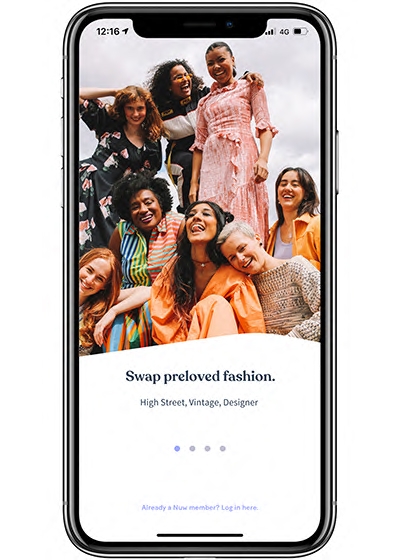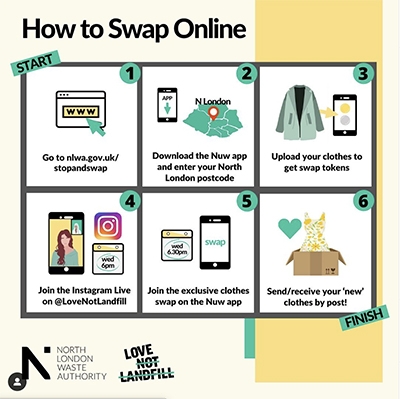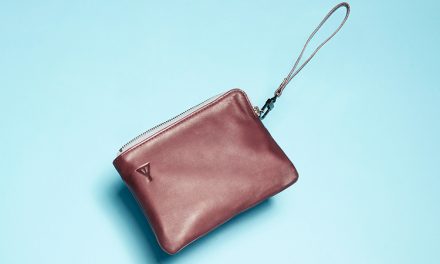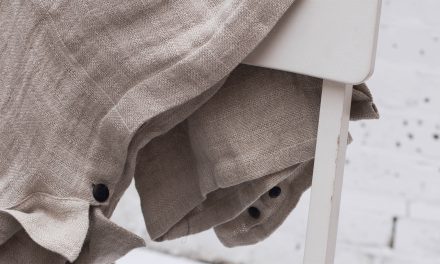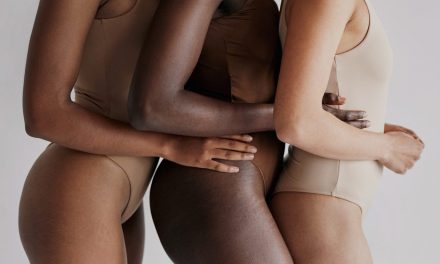The Rise and Rise Of Clothes Swapping
Clothes swapping is an ideal way to enjoy playing with style and clothes. More importantly it keeps clothes in circulation for longer, as well as being price accessible for lots of people. Now Thats the type of fashion we love!
What Is Clothes Swapping?
A clothes swap event, otherwise known as ‘Swishing’, is traditionally a party where attendees bring clothing and accessories they no longer want, and swap them with other peoples items. It’s a free, easy and fun way to get more life out of your wardrobe, and play with fashion. Usually the items swapped are set at a certain amount, this makes the whole swapping game fairer. That way you won’t end up swapping your Gucci loafers for a Zara dress. More rules can be added depending on the swapping event. For example, you can sort the items into high street or high-end categories, or the typology and weight. A wool coat will of course not have the same value as a t-shirt. For more details on hosting your own clothes swap, we love this step by step guide by Fashion Revolution.
Ownership Is Over
However, it’s important to remember that it doesn’t matter how much you paid for your items initially. No one will ask for receipts. The idea is to get rid of stuff you don’t need or love anymore, replacing it with ‘new’ stuff you’re way more excited about. After all, one person’s trash is another person’s treasure. And for the first time, you can even do it from the comfort of your couch. Aisling is the Founder of Nuw, the app that lets you swap clothes with people you’ve never met. “We realised we were creating our own answer to ‘how do we practice sustainable fashion when we’re broke’; the age-old tradition of sharing with friends,” she explained of her love of swapping. “By diving into a mate’s closet to borrow a top for a night out or a jacket for a few weeks, our wardrobes could stay updated without the need to buy anything new.”
Like most big thinkers, Aisling was struck with the idea of doing this on a bigger scale. Nuw offers users the opportunity to swap clothes with each other, easily and for only the cost of postage. Users simply upload items for checking by the team, who then allocate it a gold or silver token. Then you can start swapping immediately. The app allows you to message with the owner, organise pick up or delivery et voila, new (not really) clothes.
Why Should You get Involved With Clothes Swapping?
Circular economies are fast becoming popular, and this model is one of the most sustainable choices you can possibly make. A new eye-opening survey by Censuswide for North London Waste Authority (NLWA) shows an encouraging big shift to thrift amongst youngsters with the growing popularity of pre-loved clothes and clothes swaps. One in two Millennials (25-30) and Gen Z (16-24) bought second-hand, swapped or borrowed more in 2020 than 2019. One in five Gen Z belong to a virtual swap group. Aisling agrees that the market is growing. “With the rise of the second-hand market, and Gen Z’s shopping habits, thrifty apps are definitely having their moment,” she explained. “Most people are selling second-hand clothes but then using that money to buy more clothes. Swapping just takes the cost out of it because your clothes are your currency!” We couldn’t agree more.
Do you work in sustainability?
The WIP is our new digital platform for eco aware brand founders, entrepreneurs and side hustlers. It's a place to find community as well as learning resources. Launching this Winter, you can sign up for updates below.
This all sounds very promising but the big question is – why is it deemed ‘sustainable’? First of all, consider it from an environmental standpoint. By swapping you literally don’t produce demand for anything new. No new fabrics, no new dyes, no new packaging, no new labels, no more emissions or water waste. At the same time, consider the accessibility of swapping. We know this is a pivotal point, since sustainability is often thought of as expensive and elitist, inaccessible to lower incomes. How can we begin any consistent change of our consumption habits if only a few rich people can take part right? You don’t need to invest any money to swap!
Swap To Create Your Dream Capsule Wardrobe
One of the most efficient tricks for maintaining a capsule or minimal closet is to buy one item only once you get rid of another one, a one in one out mentality. According to Fashion Network, just in Europe, 5 millions of tonnes of clothes are sold. Europe also produces 4 million tonnes of waste. You heard it right. The consequences to the environment are devastating, and we only keep hold of ⅕ of what is made and sold.
The wonderful consequence of clothes swapping is that it reduces purchases and waste simultaneously. It’s a virtuous circle in which the longevity of an item is exponentially multiplied. According to trade.org, the UK’s charity shops diverted over 330,000 tonnes of textiles from landfills in 2017. According to the WRAP Valuing Our Clothes report, 38 million new clothing items are bought every week in the UK, and 11 million go to landfill.
How Does Clothes Swapping Work?
Clothes swapping can be as formal or informal as you wish. As long as you set clear rules, and everyone understands how it works, you can hold a clothes swap party pretty much anywhere with anyone. Of course widening your network from just friends, will mean more chances to make a successful swap. Typically this works best at an in person clothes swapping event, that way you can see stuff in real life before you commit. However, technology is a great ally when it comes to sustainable living.
Thats where Nuw comes into it’s own. Maybe your mates don’t have the same taste as you, or aren’t the same size as you? Nuw expands your clothes swapping horizons. “Most people also think you have to trade directly with another member,” Aisling explained when we asked her about the drawbacks of swapping. “However on Nuw you can list your fashion for tokens and don’t have to wait for your items to get swapped first: you’re free to swap with any other item on the app you like whenever you’ve got a token to spare!”
Nuw have also teamed up with the Love Not Landfill campaign which wants to encourage young Londoners to donate their unwanted clothes to charity, put them in clothes banks, swap them, borrow them and buy second-hand, basically doing anything except putting them in the bin. Before lockdown and in partnership with North London Waste Authority, they organised a series of online clothes swap events in North London. According to them, “there are £30 billion worth of unworn clothes in the UK’s wardrobes, and research shows that extending the life of clothes by 9 months reduces their impact on the environment by 25%”. The exciting part is that clothes swaps have become popular, especially with younger audiences. “75% of 16-24s recently polled said they have swapped or would swap clothes” they told us.
Should clothes swapping be in the list of your eco-resolutions? We think so. Chair of NLWA Cllr Clyde Loakes believes that the practice will only become more relevant. “We ran our first clothes-swapping events in north London in 2013 and we’ve seen appetite for them grow and grow. Attendance at the first events was 338 people, but last year’s events saw over a thousand people coming through the door (…) Clothes swapping is invaluable. It’s inclusive, free, and is definitely a step in the right direction. We need to wake up to the fact that endless consumption is taking its toll on our planet.”
Did This Put A Smile On Your Face? Why Not Subscribe?
If you enjoyed this then theres plenty more on our email newsletters that you'll love. Whether you're a sustainable newbie or an eco conscious pro, our bi monthly emails will inspire you to live sustainably and ethically.
Disclaimer: The people and models in the images featured are not associated with The Vendeur and do not endorse it or the products shown. This post may contain affiliate links. Prices correct at time of publishing.

